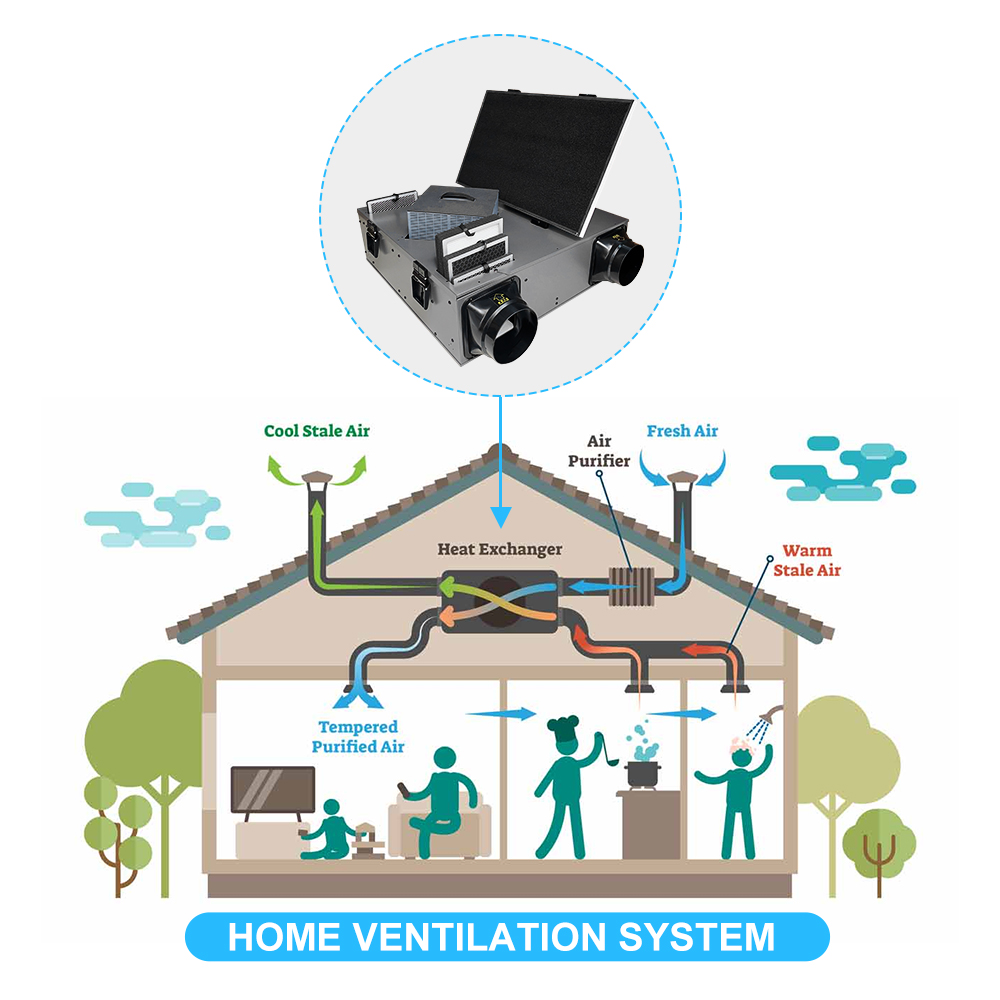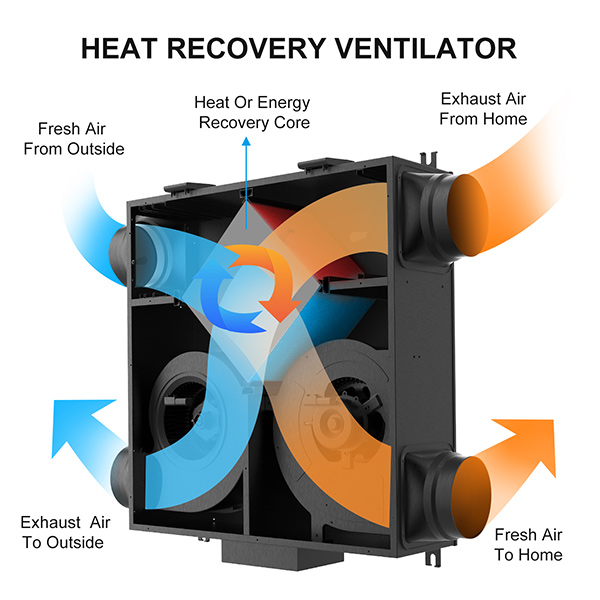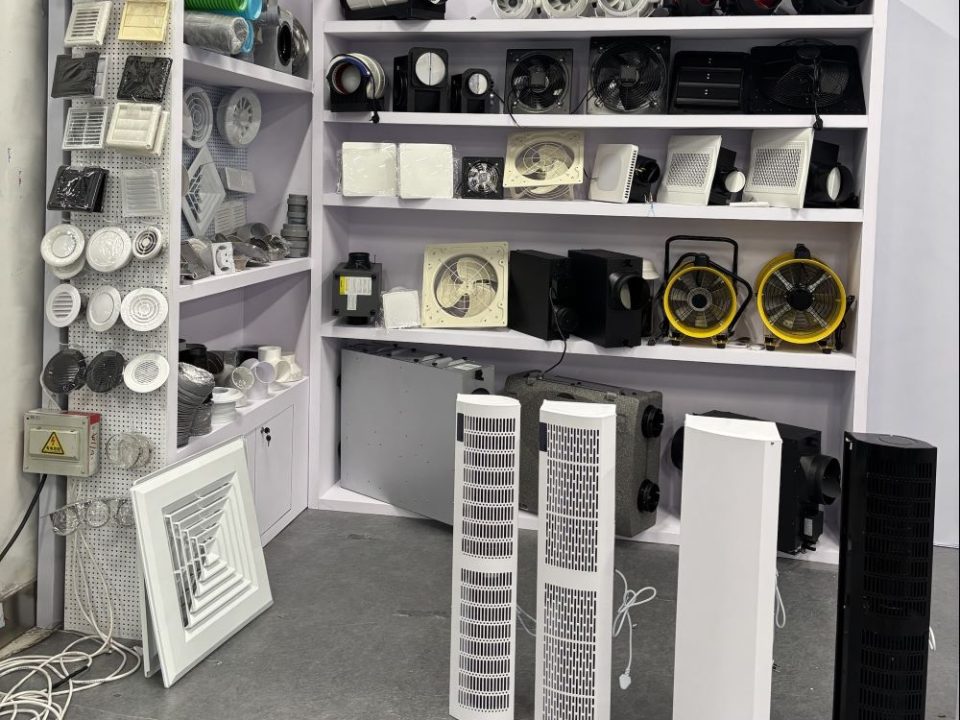Heat Recovery Ventilation (HRV) and other ventilation products play a crucial role in improving indoor air quality (IAQ) by addressing several key factors. Here’s how they contribute and why it is important:
How HRV and Ventilation Products Improve Indoor Air Quality:
- Fresh Air Supply:
Introduction of Fresh Air: HRV systems and ventilation products bring in fresh outdoor air, reducing the concentration of indoor pollutants and ensuring a continuous supply of oxygen.

- Moisture Control:
Condensation Prevention: Proper ventilation helps control humidity levels. HRV systems can recover heat from the outgoing air and transfer it to the incoming air, reducing the risk of condensation and mold growth.
- Pollutant Removal:
Exhaust of Indoor Pollutants: Ventilation systems help remove pollutants such as volatile organic compounds (VOCs), cooking fumes, and odors by exhausting them to the outdoors.
- Particle Filtration:
Air Filtration: Some ventilation systems come with filters that capture particles like dust, pollen, and allergens, enhancing the overall air quality.

- Temperature Control:
Heat Recovery: HRV systems recover heat from the outgoing air and use it to preheat the incoming air during colder seasons. This process helps maintain a comfortable indoor temperature while providing fresh air.
- Improved Comfort:
Reduced Staleness: Adequate ventilation prevents indoor air from becoming stale, creating a more comfortable and pleasant living or working environment.
Importance of HRV and Ventilation for Indoor Air Quality:
- Health Benefits:
Respiratory Health: Good indoor air quality is essential for respiratory health. Proper ventilation reduces the concentration of airborne pollutants, minimizing the risk of respiratory issues.

- Comfort and Well-Being:
Enhanced Comfort: Fresh air circulation contributes to a comfortable and pleasant indoor environment, positively impacting the well-being of occupants.
- Mold Prevention:
Reduced Moisture: Adequate ventilation helps prevent excess moisture, reducing the likelihood of mold and mildew growth. Mold can have adverse effects on both health and the integrity of building structures.
- Energy Efficiency:

Energy Recovery: HRV systems contribute to energy efficiency by recovering heat from exhaust air. This can result in lower heating and cooling costs.
- Productivity and Concentration:
Improved Cognitive Function: Studies suggest that good indoor air quality can enhance cognitive function, leading to improved productivity and concentration.
- Compliance with Building Codes:
Regulatory Compliance: Many building codes and standards require proper ventilation systems to ensure the health and safety of building occupants. Compliance helps avoid legal and health-related issues.
HRV and ventilation products are essential for maintaining high indoor air quality, promoting occupant health, and creating a comfortable living or working environment. Proper ventilation is a fundamental aspect of building design and operation, and its importance cannot be overstated.


